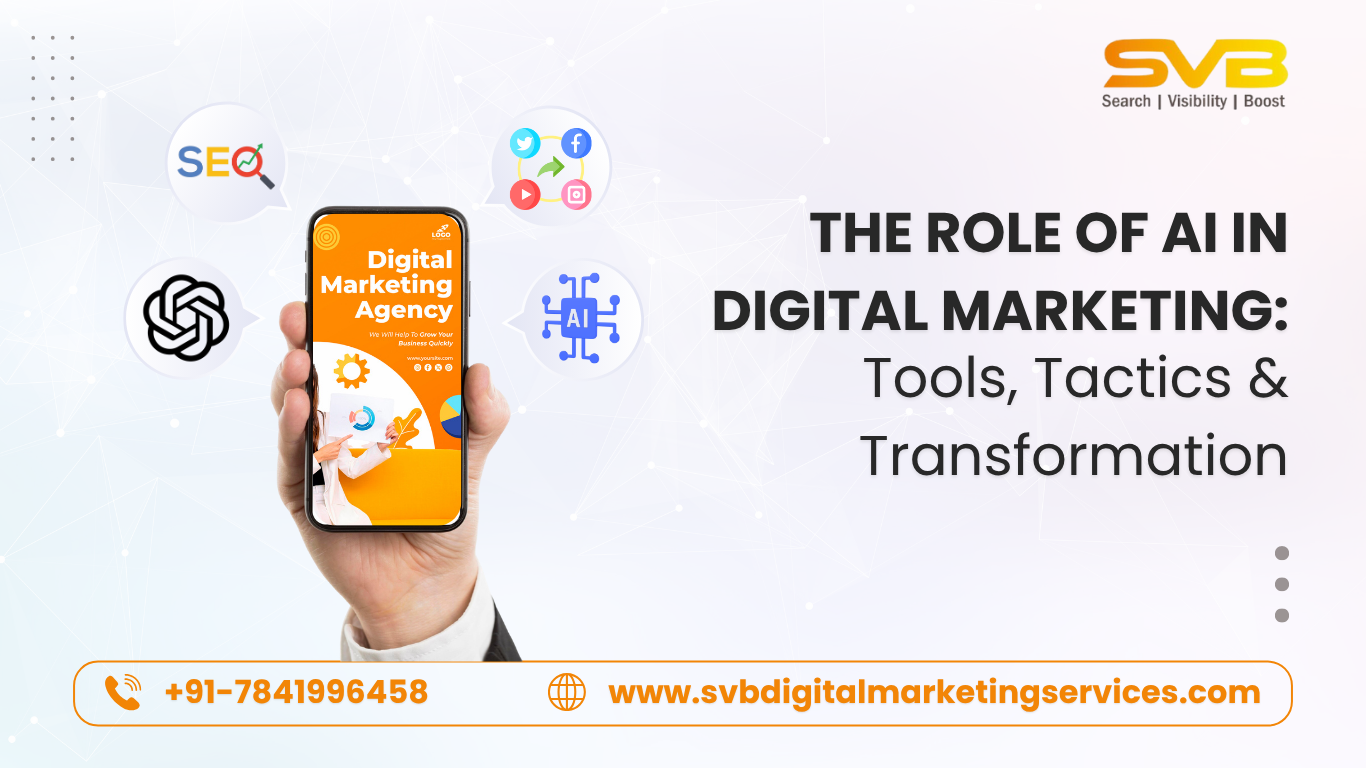In the fast-evolving world of digital marketing, Artificial Intelligence (AI) is no longer a buzzword it’s the engine powering smarter strategies, leaner workflows, and more personalized brand experiences. From predictive analytics to intelligent content creation, AI has shifted from being a future concept to a present-day necessity.
This transformation is not just about automation. It’s about amplification using AI to scale what works, understand what doesn’t, and craft marketing journeys that actually convert. If you’re ready to take your digital presence to the next level, partnering with the Top digital marketing services in India and USA can help you navigate these changes seamlessly. Let’s explore how AI is reshaping digital marketing through powerful tools, data-driven tactics, and strategic transformation.
1. Tools that Power AI-Driven Marketing
AI tools are at the core of the modern marketer’s tech stack. Here’s where they’re making the biggest impact:
- AI Copywriting Tools
Platforms like Jasper, Copy.ai, and ChatGPT (yes, this very assistant) help marketers generate high-quality content for ads, blogs, emails, and social media at scale. While human creativity still reigns supreme, AI provides the starting blocks drafts, outlines, and variations that speed up content production. - Predictive Analytics Platforms
Tools like HubSpot, Salesforce Einstein, and Adobe Sensei use AI to analyze historical data and predict future customer behavior such as churn risk, purchasing patterns, and lead scoring. - Programmatic Advertising
AI automates real-time ad buying through platforms like The Trade Desk or Google DV360, optimizing ad placement and spend across channels based on audience behavior and performance data. - Chatbots and Conversational AI
Tools like Drift, Intercom, and Zoho SalesIQ use NLP to handle customer queries, qualify leads, and provide 24/7 engagement significantly improving response rates and user experience.
2. Tactics Enhanced by AI
AI isn’t replacing marketers it’s upgrading them. It enhances everyday tactics that used to take hours into strategic levers that drive results.
- Hyper-Personalization at Scale
AI analyzes behavioral data (clicks, past purchases, session durations) to craft personalized messages, product recommendations, and landing page experiences. Email marketing tools like Klaviyo or Mailchimp use AI to suggest send times, segment audiences, and optimize subject lines for better engagement. - SEO Optimization
Platforms like Surfer SEO, Clearscope, and MarketMuse leverage AI to recommend keywords, structure content, and assess SERP competition. AI also predicts which content pieces are likely to rank and where optimizations are needed removing much of the guesswork. - Smart Content Curation
AI tools like Curata or UpContent help marketers surface relevant articles, trends, and social content based on topic modeling and audience interests essential for thought leadership and newsletter curation. - Sentiment Analysis and Social Listening
AI platforms like Brandwatch and Sprinklr track sentiment in real time, helping brands understand how their audience feels not just what they say. This makes campaign refinement more responsive and relevant.
3. Strategic Transformation in the Age of AI
What’s most transformative about AI in digital marketing isn’t just what it does it’s how it changes the thinking. Here are three ways AI is transforming marketing mindsets:
- From Reactive to Predictive
Traditional marketing relies on post-campaign analysis. AI flips that timeline allowing marketers to predict what content, ad, or message will work before hitting “publish.” This leads to smarter budgets, lower CPAs, and more consistent ROI. - From One-Size-Fits-All to Individualized Journeys
Whether B2B or B2C, every customer now expects brands to “know them.” AI makes it feasible generating dynamic content, product feeds, or retargeting ads tailored to user behavior in real time. - From Manual Reporting to Strategic Insights
AI-powered dashboards don’t just show data they tell a story. Marketers can now receive prescriptive insights, like “this email subject line performs 30% better with Gen Z segments,” or “your LinkedIn ad CPC is rising due to audience saturation.”
What AI Can’t Replace And Why That Matters
It’s important to recognize what AI doesn’t do well: emotional nuance, original storytelling, or deeply human empathy. AI can write a product description or suggest a headline, but it can’t replicate the trust built through authentic brand voice, long-term consistency, or human values.
Marketers who succeed in the age of AI are not the ones who resist it but those who guide it with clear strategy, creative vision, and ethical responsibility.
The Human-AI Partnership
AI in digital marketing is not a tool it’s a collaborator. It handles the heavy lifting so marketers can focus on big-picture thinking. When used responsibly, it creates a powerful feedback loop: more data, better decisions, stronger impact.
The real transformation isn’t about replacing humans with machines. It’s about empowering humans with machines so marketers can do what they do best: understand people, tell stories, and build brands that matter.

